I was intrigued by the Atlantic Monthly article “The Overprotected Kid” warning of a lack of independent, creative play for today’s children, and hailing the emergence of “adventure playgrounds.” I was hardly surprised when it provoked a strong response and went viral.
But I was also struck by how long this problem has been in the making. As far back as 1978, in a book provocatively titled Four Arguments for the Elimination of Television, Jerry Mander gave one
of the most eloquent and prescient warnings ever ignored by the American public.
Our environment no longer grows on its own, by its own design, in its own time. The environment in which we live has been totally reconstructed solely by human intentions and creation. We find ourselves living inside a kind of nationwide room. We look around and see only our own creations. We go through life believing we are experiencing the world when actually our experiences are confined within entirely human conceptions. Our world has been thought up… We ask the child to understand nature and care about it, to know the difference between what humans create and what the planet does, but how can the child know these things? The child lives with us in a room inside a room inside another room.
Thirty-five years later, Mander’s “room inside a room inside another room” is a reality with consequences. A 2006 book entitled Last Child in the Woods wrote of modern children suffering from
“nature-deficit disorder”––an actual trend involving the far-reaching effects our culture’s retreat into our own creations and away from natural contact has on us, especially on our youth. It speaks
of Bill McKibben’s term, “The End of Nature,” not as a doomsday scenario but, in our children’s lives, a practical reality.
As Mander predicted, today’s children not only lack direct interaction with nature, but live mostly in artificial environments designed for some human purpose or agenda. The average American youth spends 82 minutes per day on the phone, 80 minutes playing games, and 27 minutes on a computer––nearly three hours a day with electronics––yet only four minutes outside. In effect,
they’re being pandered to by every part of the world they inhabit.
It’s hard to measure all the ways in which this lack of interaction with nature and what Mander called “un-mediated reality” affect them. Because today’s adults came from the transitional
generation which migrated from the old ways, we still enjoy an ingrained memory of what we lost––enough to inspire all those wistful reminiscences (ironically, posted on Facebook), of
“childhood as it used to be.”
But what about a generation weaned and reared with no memory of an outdoor, “un- mediated” childhood? What about our children’s grasp on reality? One of humanity’s oldest problems is our
tendency to lose perspective, to let our five senses and the sameness of everyday surroundings warp our view of what’s real and important. So what will happen when our kids finally quit interacting with what Mander calls “non-planetary reality”–– i.e., everything from Mother Nature to God? How high will be the cost of trading simple joys of touching, smelling, running, being exhausted from a hard day’s play––all for a few hours in a virtual world?
And for every parent, a more immediate question: what do we do about it? How does a modern parent, unable to simply move his or her family into the woods, address this problem?
Certainly, they can teach their children to distinguish between man-made environments and natural ones. They can limit kids’ use of the most immersive technologies. They can schedule outings to parks and wildlife areas and become more intentional about planning time outdoors. In other words, they can seek to entertain their families in environments not designed to entertain them––designed by Someone beyond and bigger than themselves.
But what about outdoor activity away from family structure and parental supervision? What about nurturing children’s ability to improvise and strike out in creative play? And what about parents
who can’t manage all these adjustments?
One powerful solution rests in a familiar and time-honored institution.
Youth camp.
For a period of usually a week, around 10,000 minutes––often more––campers escape their environment, decompress and reassess their lives without distraction, and experience actual
adventures in a natural setting. They form new relationships with brand-new peers and caring, adult role-models from other places and backgrounds––a temporary
community where they can take risks and ask, even answer, life’s most important questions.
Camp is structured, and it’s not meant to be the end of the experience. But for many urban children, it’s their only chance to spend time outside their everyday reality. It’s also their only
encounter with nature not confined to the boundaries of a park, a playing field or concrete landscape. And it’s their only chance to take stock of their lives from the perch of what campers
often call “a mountaintop experience”––a catch-all term for the remarkable legacy of life-changing decisions, breakthrough insights and cathartic moments only camp can inspire.
Even better, camp is the perfect gateway to a lifetime of less-structured and adventurous adventures with nature. Many adults with a life-long love of the outdoors point to camp as the
place where that bond was first ignited. We call it The Power of Camp, because of the many highly-successful and thriving adults who tell us it all started there. Many point to camp as the
place where their relationship to their Creator began and where they experienced the thrill of adventure and overcame fears.
Best of all, camp is already here––in countless locations and available now. Just in time for summer.
Gregg Hunter is the President/CEO of Christian Camp and Conference Association, an organization that serves more than 800 camps across the U.S. who welcome almost six million campers and guests a year. Hunter went to summer camp as a 17-year-old because of the kindness of a woman in his hometown who paid his way. CCCA launched www.thepowerofcamp.com to help send impoverished kids to camp and to provide a way for parents to find a great camp for their kids.
Photo courtesy CRISTA Camps





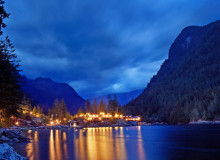


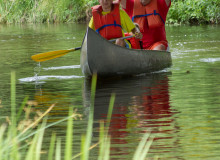
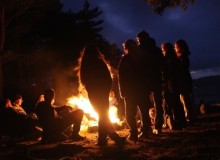




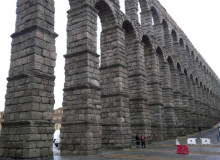
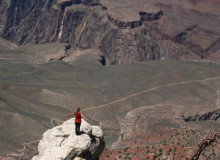
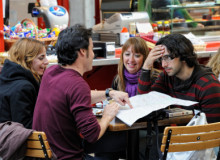


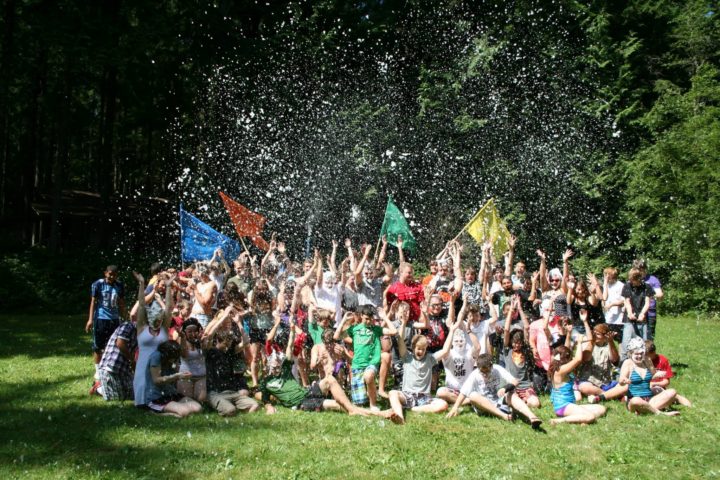

AMEN!!!
Powerful imagery and writing Greg, Thanks for the thoughts and research. I was genuinely moved as a parent and veteran of Christian Camping, so much truth, Thank you.